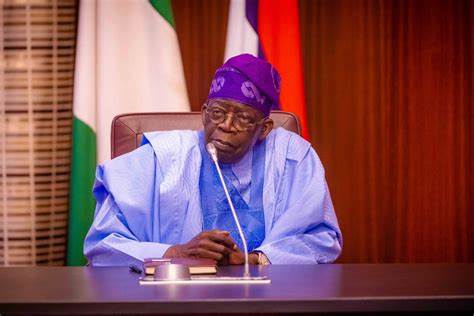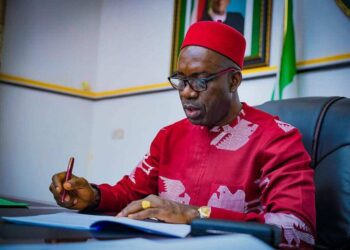A prominent Peoples Democratic Party (PDP) figure from Kaduna State has sharply criticized recent moves by All Progressives Congress (APC) leaders from Nigeria’s North West zone to back President Bola Tinubu for re-election, questioning the administration’s performance record in the region.
Umar Sani, formerly spokesperson to ex-Vice President Namadi Sambo, described the endorsement as premature and unwarranted, arguing that the current administration has delivered minimal tangible benefits to the seven-state geopolitical zone.
The criticism comes in response to Friday’s high-profile meeting where North West APC leadership—including APC National Chairman Umar Ganduje, regional governors, House Speaker Tajudeen Abbas, and Deputy Senate President Barau Jibrin—unanimously declared their support for Tinubu’s potential second term bid.
Constitutional Rights, Not Presidential Favors
In a detailed statement released Saturday, Sani rejected claims that the North West has received preferential treatment under Tinubu’s administration, characterizing the endorsement as displaying “weakness, desperation, and apprehension about forthcoming electoral challenges.”
“The appointment of twelve ministers from our region reflects constitutional obligations rather than special consideration,” Sani asserted, referencing Section 147(3) of Nigeria’s 1999 Constitution, which mandates representation from each state in the Federal Executive Council.
“These appointments should be recognized as fulfilling basic requirements, not celebrated as extraordinary achievements,” he added.
Portfolio Distribution Questioned
The PDP chieftain highlighted what he described as a significant disparity in ministerial portfolio distribution, noting that despite having more representatives numerically, North West officials have been assigned to “less consequential” positions.
“The South West, with just six states but ten ministerial appointments, controls the nation’s economic powerhouses,” Sani observed, listing key ministries under South West leadership: “Finance under Wale Edun, Mines and Steel led by Henry Dele Alake, Power headed by Adebayo Adelabu, Communications and Digital Economy directed by Bosun Tijjani, Blue Economy managed by Gbenga Oyetola, and Interior overseen by Tunji-Ojo.”
He further noted the South West’s control of the Central Bank governorship, contrasting this concentration of economic influence with what he characterized as the North West’s “peripheral roles with minimal regional impact.”
Parliamentary Positions “Not Presidential Gifts”
Sani similarly dismissed suggestions that legislative leadership positions held by North West representatives constituted special consideration from the presidency.
“Parliamentary assignments such as Speaker and Deputy Senate President represent standard political balancing based on zoning arrangements and internal legislative agreements,” he stated. “These are not discretionary benefits bestowed by the executive but political rights that, regrettably, have not translated into meaningful policy influence or priority budget allocations for North West development initiatives.”
Infrastructure and Security Concerns
The statement painted a bleak picture of current conditions in the North West, describing a region “suffering from infrastructural deterioration” and security challenges despite its significant electoral importance.
“The area continues to experience substandard roadways, insufficient healthcare facilities, underfunded educational institutions, and persistent insecurity,” Sani maintained. “Mere political appointments without strategic economic empowerment initiatives are fundamentally inadequate.”
Sani concluded by urging regional stakeholders to prioritize substantive development over political symbolism, warning that without “equitable access to significant portfolios, substantial infrastructure investment, and truly inclusive governance practices,” the North West would remain “politically valuable but economically marginalized.”
Neither the presidency nor North West APC leadership had responded to these criticisms at the time of publication.
Political analysts note that this exchange marks the beginning of positioning for the 2027 electoral cycle, with both major parties beginning to establish their regional strategies more than two years before the next presidential contest.




















